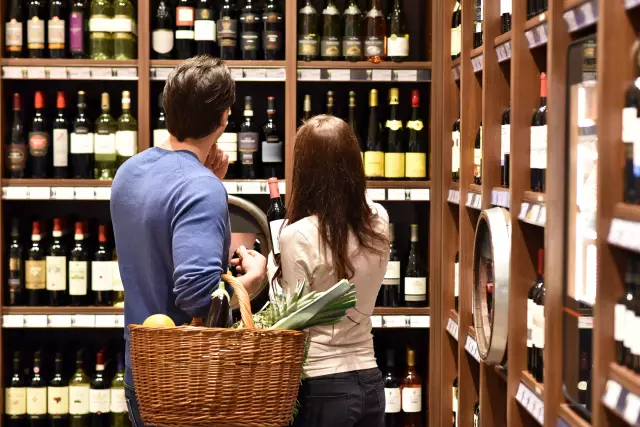Tense situation on the wine market
Although the situation on the German wine market improved slightly overall last year compared to 2022, it remains tense.

As announced by the German Wine Institute (DWI) on the basis of the commissioned wine market analysis by NielsenIQ, sales made with wine purchases in Germany in 2023 remained stable compared to the previous year.
<p <p>Wine sales, on the other hand, fell by four per cent, which is mainly due to the fact that fewer people are buying wine. In 2023, the number of households buying wine fell by 4.5 per cent compared to the previous year. However, the quantities of wine purchased per household and the frequency with which they buy wine have not changed. In addition, last year more wine was drunk in restaurants and cafés, particularly by well-off households, which is also likely to have had a diminishing effect on wine purchases.</p <p>Constant turnover due to higher price levelAs DWI Managing Director Monika Reule explains, the constant sales level is due to a higher price level despite declining purchasing volumes. In 2023, the average price for all wines rose by 19 cents or five per cent compared to the previous year to 4.08 €/l.
The price increase of 31 cents to 4.51 €/l for domestic wines was even more pronounced than for wines from abroad, which rose by an average of eleven cents to 3.76 €/l. <bdquo;For German wine producers, the massive rise in operating costs made these price increases unavoidable, whereby the increases in operating costs were generally higher than the revenues generated,</p>
emphasised Reule.
The different price levels for domestic and imported wines also had an impact on the purchasing behaviour of price-sensitive consumers. For example, sales of German wines fell by nine per cent in 2023, whereas foreign wines were only bought one per cent less. This had a negative impact on sales of two per cent for German wine producers and an increase of two per cent for suppliers of international wines.</p <p>„Due to the inflation-related loss of purchasing power in 2023, households were forced to pay more attention to the price when buying wine. Otherwise highly prized values such as regionality have been forced to take a back seat when shopping," explained Reule. The DWI boss therefore hopes that the market situation for German wine suppliers will ease when the economic situation for consumers improves again.
<p <p>As a result of the above-average sales losses, the market share of German wines in terms of purchased wine volumes fell by two percentage points to 42 per cent last year. Of the foreign origins, Italian wines had the highest volume market share at 17 per cent (+2 percentage points), followed by wines from Spain with an unchanged 14 per cent and French wines with a likewise constant ten per cent. <p <p>Due to the higher average price of domestic wines, their share of expenditure on wine was 47 per cent. Compared to 2022, this corresponds to a decrease of one percentage point. <pContact persons
-
Ernst Büscher
Pressesprecher / Press officer
-
Frank Schulz
Abteilungsleitung Kommunikation / Head of communication department



